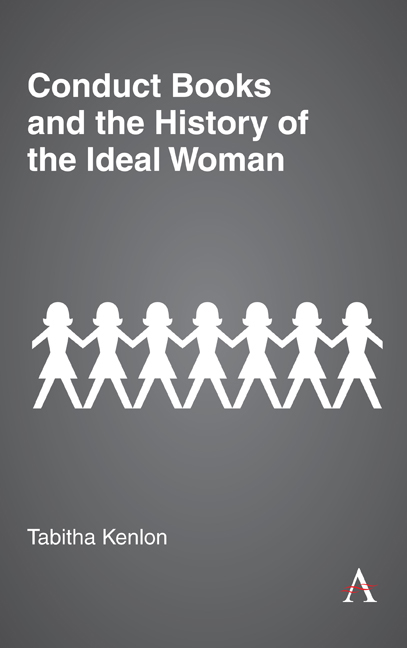Book contents
- Frontmatter
- Contents
- Acknowledgments
- Explanatory Note
- Introduction: Woman as She Should Be
- 1 A Good Woman Is a Godly Woman, Obviously
- 2 Conduct for Those Who Are Not Queen
- 3 Look but Don’t Talk: Reflections of the Ideal
- 4 Playing the Part as Nature Intended
- 5 Victoria’s Angels
- 6 Suffrage, Little Wives and Career Girls
- 7 Feminism Changes Everything, Right? Right??
- Coda: An Ideal End
- References
- Index
Introduction: Woman as She Should Be
Published online by Cambridge University Press: 30 April 2020
- Frontmatter
- Contents
- Acknowledgments
- Explanatory Note
- Introduction: Woman as She Should Be
- 1 A Good Woman Is a Godly Woman, Obviously
- 2 Conduct for Those Who Are Not Queen
- 3 Look but Don’t Talk: Reflections of the Ideal
- 4 Playing the Part as Nature Intended
- 5 Victoria’s Angels
- 6 Suffrage, Little Wives and Career Girls
- 7 Feminism Changes Everything, Right? Right??
- Coda: An Ideal End
- References
- Index
Summary
The battle over women's behavior is perhaps the longest war in history. We live with its consequences and participate in skirmishes almost every day, as recent high- profile developments like GamerGate, MeToo and Time's Up remind us. These cases focus on harmful male behavior,but the impunity with which many men act is the result of millennia of precedent, based largely on the desire to con¬trol women's action, through force if necessary. Traditionally, if a woman defies or falls short of the ideal, her punishment is understood to be justifiable. The passive female ideal can be found throughout history, represented in visual art, religious texts and literature. From the late fourteenth century, conduct manuals provided printed details about what the ideal woman should and should not do; these books contain the stories we have been told for centuries about what is manly and what is womanly and why men are strong and powerful and women are not— though typically, the rhetoric reveals a certainty that men are strong and a desperate hope that women are not. After all, it is only necessary to con¬trol the things that are feared. If women were truly as weak as many men would have us believe, those men would not work so hard to control women.
This book focuses on British and American standards for women's behaviour,but the texts I examine here voice concerns that can be found across innumer¬able cultures, traditions and religions. This in itself is noteworthy. Globally, throughout history, the behaviourof women has been paramount, and there have been different standards of conduct for men and women. In the pages that follow, I will not attempt to prove that this is true and unjust; most people seem to agree, in principle if not in practice, that double standards and inequality are wrong. Instead, this book provides an analysis of the history of the female ideal as presented in conduct manuals— how appropriate womanly behaviourwas defined and justified from the early days of print to the present in a variety of advice literature.
The female ideal is both obvious and mysterious.
- Type
- Chapter
- Information
- Conduct Books and the History of the Ideal Woman , pp. 1 - 12Publisher: Anthem PressPrint publication year: 2020



